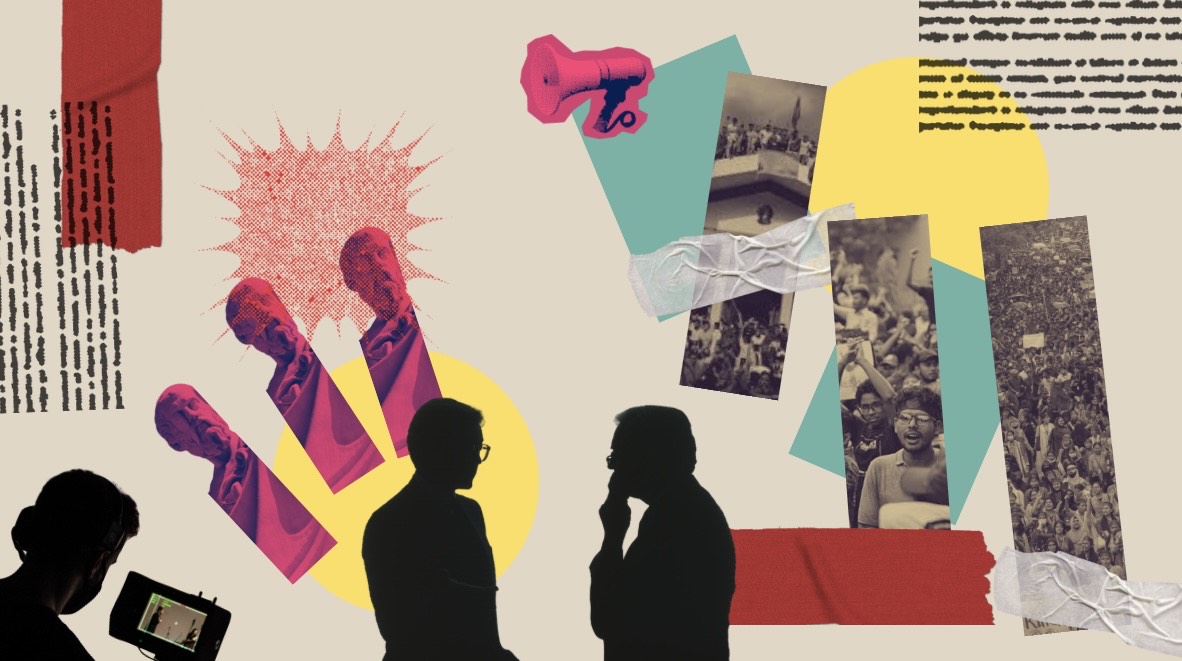Wording the word and worlding the world: Poetics and politics of translation

Translation is never merely a matter of linguistic equivalence. As Walter Benjamin proposed in The Task of the Translator, it is a kind of afterlife—a reverberation of the original that both preserves and transforms, defers and restages. Translation does not transfer an intact meaning from one language to another; it conjures a ghost, recognisable, yet estranged. In a globalised, postcolonial world, the work of translation must reckon with a dual responsibility: not only to language, but to the geopolitics of representation. It unfolds across two entangled dimensions—wording the word and worlding the world—that render translation a site where poetics and politics are inseparably intertwined.
Wording the word: The impossible fidelity
To "word the word" is to confront the instability of language itself. Meaning is always deferred, as Derrida reminds us; every act of saying slides into another. Translation becomes a structurally impossible but ethically necessary act. Paul de Man's notion of the "permanent parabasis" of language—a rhetorical detour interrupting its own linearity—captures this paradox. The translator, far from being a transparent conduit, becomes a curator of estrangement, staging the untranslatable rather than concealing it.
Consider the Bangla word biraha, a devotional longing steeped in cultural specificity. English approximations, "melancholy," "yearning," "desire", fail to carry its devotional undertone and affective density. Fidelity here is not about sameness but about letting difference resonate. Translation becomes an act of estranged fidelity, where failure to replicate becomes the space of meaning.
Thus, the translator is not a neutral bridge but a creative curator of opacity, attuned to the poetics of resonance and resistance. The literary turn in translation studies reimagines the translator as a writer—one who writes through and with instability. Here, the excess of language—the aporia, the opacity, the unrenderable remainder—is not erased but foregrounded. Trust lies not in fluency or equivalence, but in friction: in preserving the weight of words without dissolving their strangeness.
Worlding the world: The politics of framing
If wording the word engages the poetics of language, worlding the world exposes the politics of representation. The phrase draws from Heidegger's The Origin of the Work of Art, where art does not merely depict the world but discloses it as a horizon of meaning, not a neutral backdrop. Worlding, in this sense, is the ontological act of rendering the world meaningful.
But in a postcolonial context, worlding takes on a coercive charge. Edward Said and Gayatri Spivak reappropriated the term to critique how the West "worlds" the non-West: by coding it into imperial epistemologies, translating it into grammars of control. Spivak famously equated translation with cartography—an epistemic practice that draws borders, imposes grids, and dictates who may speak, and in what terms. Here, translation becomes less a linguistic act than a geopolitical one: a mechanism of negotiation and contestation under unequal terms.
Translation, Spivak reminds us, is never innocent. It becomes complicit in epistemic violence when it renders the other legible only through dominant idioms—when alterity is preserved by being domesticated. Talal Asad deepens this critique, arguing that translation, particularly in anthropology, rewrites subordinate cultures within institutional logics shaped by academic authority. It does not merely reflect power asymmetries; it reinforces them.
When Tagore is translated for Western audiences as a mystical poet stripped of his radical politics, or when African texts are translated to accentuate tribalism and dysfunction, translation "worlds" a reality that flatters liberal superiority while preserving epistemic hierarchies. These are not mere choices of diction; they are geopolitical interventions.
Thus, worlding implicates translation in shaping futures—not through fidelity, but through framing. To world the world is to decide what is preserved, muted, or distorted in the passage between languages and cultures.
Translation as a site of tension and reckoning
The friction between wording and worlding is not a problem to be resolved—it is translation's very condition. It lives in this dissonance, between semantic nuance and ideological frame, textual opacity and political legibility. To translate is to engage both the poetics of expression and the politics of reception.
Take Rafiq Azad's defiant line during Bangladesh's famine-stricken 1970s: "Bhat de haramzada, noile manchitro khabo" ("Give me rice, you scoundrel, or I'll eat up the map of the land"). It bristles with hunger, anger, and subaltern resistance. No polite English rendering can preserve its texture without taming its rage. Wording demands fidelity to its rhetorical fury; worlding warns against its commodification as poetic exoticism or Oriental despair.
In such moments, translation becomes not a bridge but an insurgency. It resists smoothing and flattening. The translator becomes what Spivak calls the "intimate enemy": loyal to the text, yet disruptive of its institutional domestication. Translation emerges as a counter-hegemonic act, not one that erases difference but amplifies it in all its unsettling force.
Contrapuntal practice: Beyond reconciliation
Wording and worlding are not binary opposites but contrapuntal logics—echoing Edward Said's concept of contrapuntal reading, where texts are read in light of their imperial entanglements. A contrapuntal translation listens for dissonance: between what the text says and how it is framed, what is spoken and what is silenced. It reads against the grain of language and history.
Wording without worlding risks solipsism—a fetishisation of linguistic subtlety detached from political consequence. Worlding without wording risks instrumentalism—treating texts as ideological vessels. Responsive translation must resist both. It must negotiate a third space where meaning is neither fixed nor free-floating but agonistic—always in tension, always contested.
To dwell here is to practice double critique: interrogating both source and target. Translation is not a relay of meanings but a reckoning with difference. It insists that translation is always already an act of becoming: unsettled, porous, open to misreading. It belongs to what Paul Ricoeur called the hermeneutics of trust, but trust here is not closure. It is an openness to the untranslatable, to opacity, to the possibility that understanding requires us not to domesticate.
Shaping the future you can trust?
This year's theme for International Translation Day, "Translation, shaping a future you can trust," invokes a reassuring clarity amid algorithmic opacity and disinformation. But read through the twin lenses of wording and worlding, it demands deeper interrogation. What kind of future? Whose trust? At what cost?
If wording the word reminds us that language is unstable, then any future "shaped" through translation must embrace that instability. Trust must not imply uniformity but a fidelity to uncertainty. It must rest on ethical vigilance: a willingness to let the unfamiliar speak without taming it.
And if worlding the world reveals translation as a geopolitical act, then trust cannot be presumed. It must be earned through a reflexive politics that asks who gets to speak, how, and for whom. Translation constructs and contests futures. In this light, the 2025 theme becomes less a celebration than a challenge.
Trustworthy translation lies not in smoothing differences, but in sustaining tension. Not in fluency, but in friction. Not in closure, but in critique.
The translator as double witness
To translate is to stand at the fault line of two imperatives: to word the word and to world the world. One demands fidelity to the untranslatable; the other, vigilance against the politics of framing.
The translator is a double witness: to the impossibility of equivalence and the inequities of cultural exchange. Translation is not a seamless bridge; it is a borderland where meanings collide and resist containment. It is where articulation and erasure coexist.
To translate, then, is not merely to carry across. It is to dwell in paradox, to negotiate power, to reimagine what it means to speak across borders—not as masters of meaning, but as those who bear witness to its unmaking and remaking. In this borderland, trust is not a given. It must be continually interrogated, enacted, and sustained through a translation practice always unfinished, always becoming.
Dr Faridul Alam is a retired academic based in New York City, US.
Views expressed in this article are the author's own.
Follow The Daily Star Opinion on Facebook for the latest opinions, commentaries and analyses by experts and professionals. To contribute your article or letter to The Daily Star Opinion, see our guidelines for submission.

 For all latest news, follow The Daily Star's Google News channel.
For all latest news, follow The Daily Star's Google News channel. 

Comments